Turkish President Recap Erdogan is trashing the memory of Ataturk with Muslim-Christian conflict talk
Turkey’s President is taking his nation down a dangerous path, trashing the memory of Ataturk and inflaming ancient narratives of Muslim-Christian conflict, writes Warren Brown.
- PM ‘deeply offended’ by Turkish President’s comments
- Charles Miranda: Turkish PM’s arrogance knows no bounds
I spoke briefly about Gallipoli with the recently-elected Turkish leader Recep Erdogan during his visit to Sydney in 2005.
I had just been appointed overnight master of ceremonies for the following Anzac Day at Gallipoli, and during a lull at a dinner held in the president’s honour, we spoke of the unique friendship between Turkey and Australia that emerged from that bitter, violent chapter almost a century before.
The President was charming, warm and engaging, discussing the importance of that relationship — the antitheses of the Erdogan we’ve seen on television, with the threat anti-Muslim Australians visiting Turkey would return home in coffins ‘like their grandfathers’.
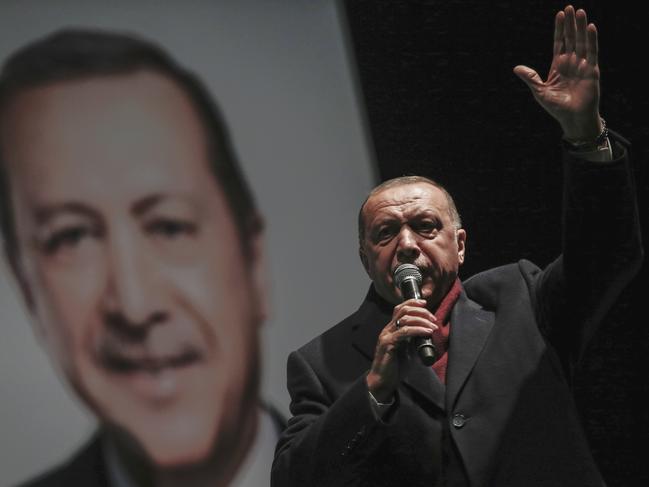
MORE NEWS
Surgeon’s heartbreak over child shot at Christchurch mosque
Travel advice reviewed for Australian heading to Gallipoli for Anzac Day
What we should tell Muslim kids after Christchurch shooting
we’re familiar with Australia, all sorts of nasty, expedient sound-bites are spewed up during election campaigns. In the ensuing 10 years I performed as MC at Gallipoli, in the back of my mind I was always conscious of the fragility of the agreement in allowing Australians and New Zealanders to congregate on Turkish soil on Anzac Day.
Yet, I could never imagine a scenario where in the 21st century our two nations would be at loggerheads — but here we are.
It might come as a surprise to many Australians and New Zealanders that at any time, Turkey can decide to close the peninsula to the annual commemorative services.
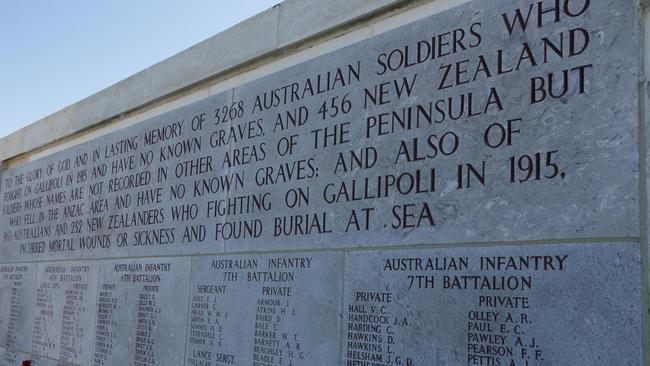
It is unlikely, yet Turkey could cite any number of reasons to do so — the threat of terrorism, environmental concerns, security — indeed, Anzac Day in Turkey is the largest annual gathering of English-speaking visitors to a primarily Muslim country in the world.
Bear in mind, Turkey has phenomenal input in footing the bill for the incredibly complex security operation on Anzac Day — police, soldiers, special forces, medical personnel — all paid for by the Turkish government.
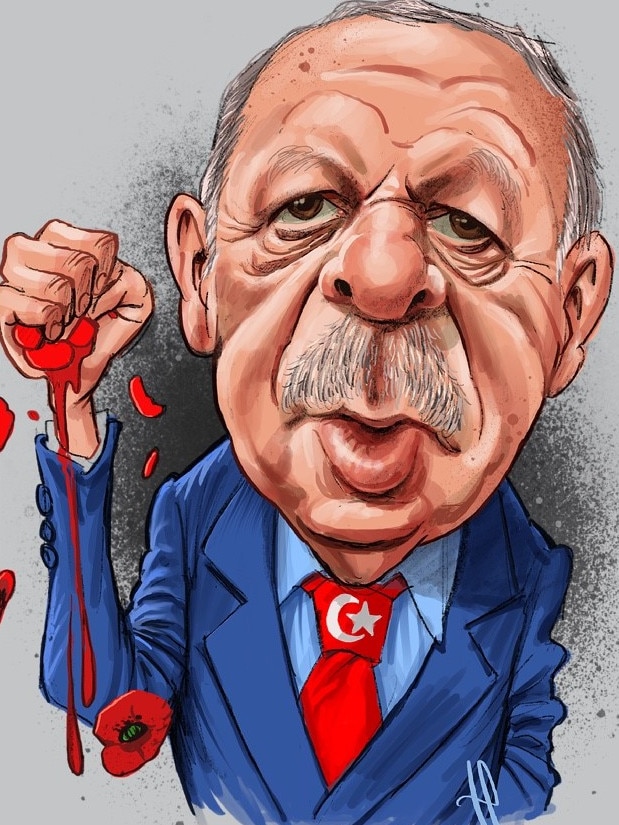
And while we are right to be outraged by the President’s threat, we need to remember, while some 8000 Australians were killed on the peninsula in 1915, Turkey lost about 250,000 during the nine-month campaign. Further, the reality is — for Turkey, the Anzacs were an aggressive, invading force.
Yet, Turkey’s interest in Anzac Day has changed dramatically during the past 15 years.
It’s gone from a largely indifferent opinion about this foreign commemoration, to a response of nationalistic fervour, growing in concert with the nation’s changing political landscape.
On my first visit to Turkey in 2006, the nation was still very much reverential of Mustafa Kemal Ataturk — the father of modern Turkey.
The hero of Gallipoli, this ferocious young colonel was on the spot to halt Turkish soldiers fleeing the invading forces — ordering them to stop and lay down facing the Anzacs.
When they stopped, the Anzacs stopped — and so did the whole campaign.
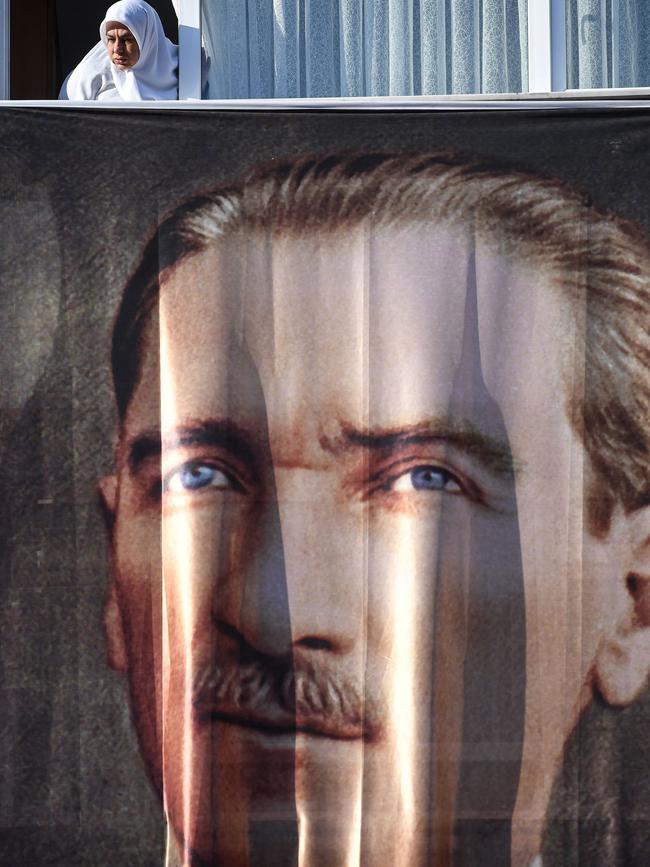
On becoming president in the 1920s Ataturk revolutionised Turkey dragging the nation into the 20th century, creating a secular society, dispensing with many Muslim traditions — and resonating with us for the statement, ‘You, the mothers, who sent their sons from faraway countries, wipe away your tears. Your sons are now lying in our bosom and are in peace. After having lost their lives on this land, they have become our sons as well’.
But since my first visit, the familiar busts and portraits of Ataturk have disappeared and the memory of this astonishing reformer is being expunged.
Initially, Turkish officials whom I grew to know had little to no concept of the idea of commemoration and I could see there was a disconnect for them as to why so many young Australians and New Zealanders would travel across the world to congregate in the dark to ‘celebrate’.
I perceived they were initially suspicious that we were rewriting the Gallipoli campaign as an Allied triumph. Turkey — a nation that takes great pride in its military might — only understood the celebration of victory — commemorating defeat was total anathema.
In fact, the memorial to the Turkish 57th Regiment — the contingent annihilated to a man not far from Anzac Cove — was little more than a carpark until it was spectacularly refurbished not long before the centenary in 2015.
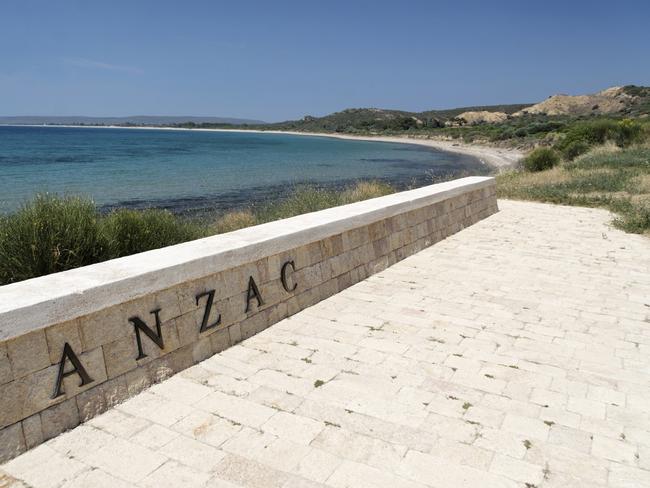
It’s only in recent years there has been a noticeable resurgence in Turkey’s interest in the campaign — at times the narrative fashioned into a Muslim-versus-Christian conflict.
On the coast at Gaba Tepe, not far from Anzac Cove, an impressive interactive museum opened not long before the 2015 centenary where visitors can experience an IMAX-style interpretation of the Gallipoli campaign.
Aimed primarily at Turkish and Muslim tourists, the English version heard through a headset is of a broadly Australian-speaking woman describing the Allied forces as the ‘warmonger nations’, the spectacular, digitally created battle scenes portraying the valiant besieged Turks almost as martyrs, the invaders as evil.
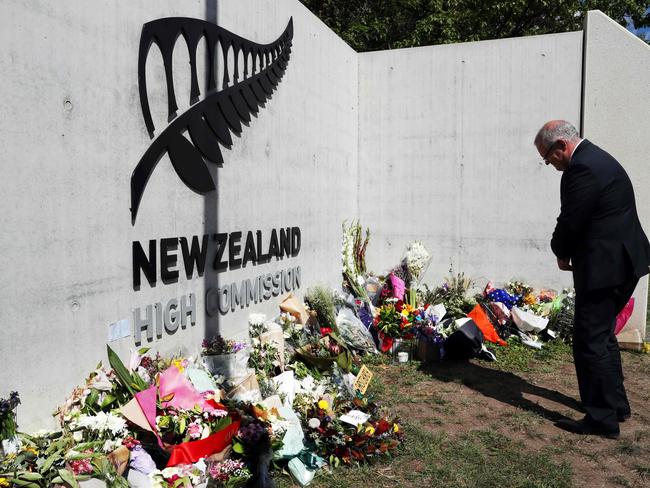
The experience ends with breathtaking footage of modern Turkey’s military might — jet-fighters, warships, soldiers on the ground — Turkey is as ready-as-ever to fight.
On my last visit to Turkey, I happened upon a series of comic books recounting the Gallipoli campaign in dramatic, comic-book fashion — the Turkish soldiers martyrs and heroes, the Anzacs almost slouch-hatted demons, soulless, conniving, cowardly murderers. It’s puerile stuff in typical comic-book fashion proving Australia’s not alone in having race-haters trying to whip up conversation.
But this is not the Turkey I know. In 2007 I had the privilege of interviewing Fatma — a Turkish Muslim woman who was a child during the campaign in April 1915. Her father was thrown into uniform to fight the invaders, dying in a military hospital.
I asked her what did she think of so many young Aussies and New Zealanders travelling to her country, the descendants of the Anzacs who were part of the force that killed her dad.
“I am not at fault, you are not at fault, they are not at fault. When they come here, they are welcome to my house. That is how it is in Turkey …”


